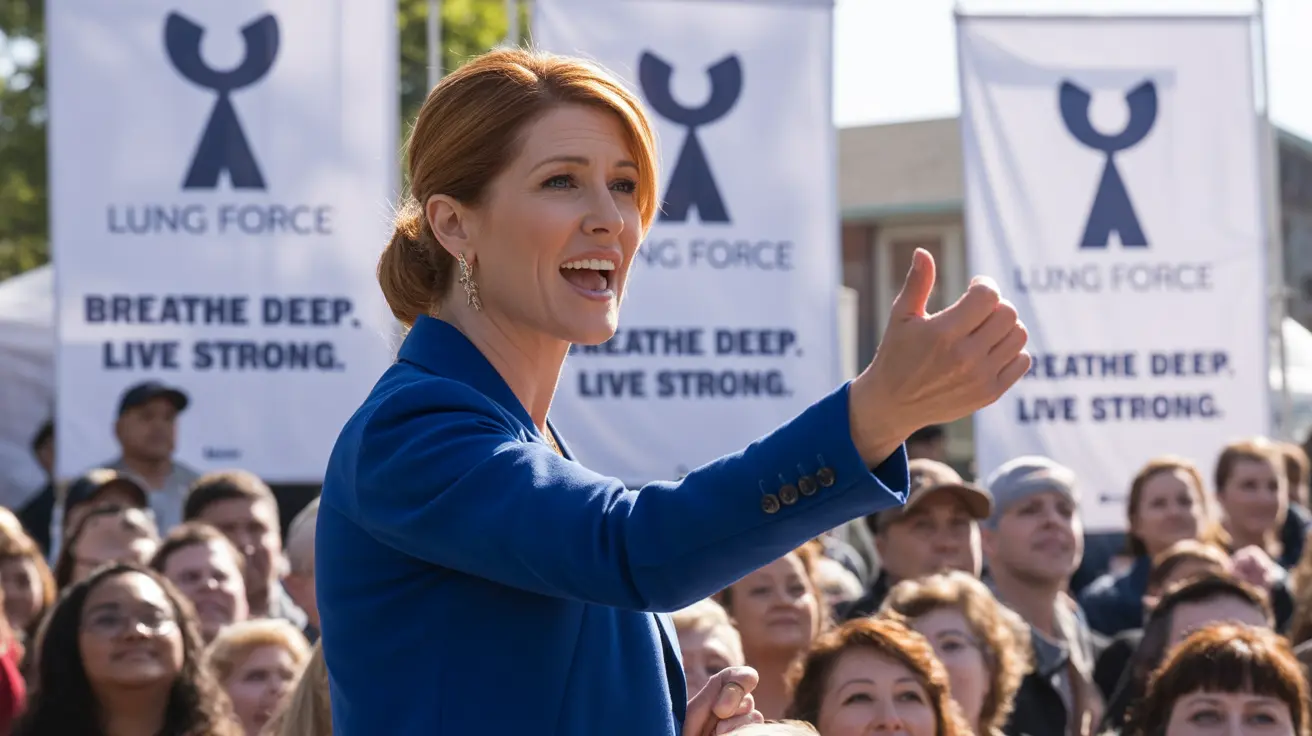Academy Award-winning actress Laura Dern has transformed her personal experiences with lung cancer into a powerful platform for advocacy against smoking and lung disease. Her commitment to raising awareness about the devastating effects of smoking stems from witnessing close family members battle lung cancer, driving her to become a vocal champion for prevention and research.
Through her partnership with the American Lung Association's LUNG FORCE initiative, Dern has elevated the conversation about lung cancer awareness and the critical importance of smoking cessation. Her work highlights the urgent need to address both the medical and social aspects of lung cancer, particularly its disproportionate impact on different communities.
Personal Connection to Lung Cancer
Laura Dern's advocacy journey began with deeply personal experiences. Having witnessed multiple family members, including her grandfather and her father's best friend, face battles with lung cancer, she developed a profound understanding of the disease's impact on both patients and their loved ones. These experiences have shaped her commitment to fighting against smoking and raising awareness about lung cancer prevention.
Leadership in LUNG FORCE Initiative
As a prominent voice in the American Lung Association's LUNG FORCE initiative, Dern has taken on a crucial role in promoting lung health awareness. The initiative focuses on several key areas:
- Raising awareness about lung cancer screening
- Promoting smoking cessation programs
- Supporting research funding
- Advocating for policy changes
- Building community support networks
Understanding Lung Cancer's Impact
Lung cancer remains the leading cause of cancer death in the United States, with smoking being the primary risk factor. The statistics are particularly concerning for women:
- Every five minutes, a woman in the U.S. is diagnosed with lung cancer
- The disease claims more women's lives than breast, ovarian, and cervical cancers combined
- Smoking accounts for approximately 80% of lung cancer deaths
Addressing Health Disparities
Through her advocacy work, Dern has brought attention to the significant racial and socioeconomic disparities in lung cancer diagnosis and treatment. These disparities manifest in several ways:
- Limited access to screening services in underserved communities
- Higher rates of late-stage diagnosis among minority populations
- Barriers to accessing comprehensive treatment options
- Lower survival rates in certain demographic groups
Community Engagement and Support
The LUNG FORCE initiative, supported by Dern, offers various opportunities for public involvement:
- Participating in local LUNG FORCE Walks
- Supporting fundraising efforts for research
- Joining advocacy campaigns
- Sharing personal stories to raise awareness
- Volunteering at educational events
Frequently Asked Questions
Q: How has Laura Dern's personal experience with lung cancer influenced her advocacy against smoking and lung disease?
A: Laura Dern's advocacy was shaped by witnessing family members battle lung cancer, including her grandfather and her father's best friend. These personal experiences drove her to become a passionate advocate for smoking prevention and lung cancer awareness through various initiatives.
Q: What role does Laura Dern play in the American Lung Association's LUNG FORCE initiative?
A: As a prominent spokesperson for LUNG FORCE, Dern helps raise awareness about lung cancer screening, promotes smoking cessation programs, and advocates for increased research funding. She uses her platform to share personal stories and encourage public participation in lung health initiatives.
Q: Why is lung cancer considered the leading cause of cancer death, especially among women, and how does smoking increase risk?
A: Lung cancer is the leading cancer killer because it's often diagnosed at later stages and has high mortality rates. Smoking is the primary risk factor, causing about 80% of lung cancer deaths. Women are particularly vulnerable, with the disease claiming more lives than breast, ovarian, and cervical cancers combined.
Q: What are the racial disparities in lung cancer diagnosis and treatment that Laura Dern highlights through her advocacy?
A: Dern's advocacy work highlights disparities including limited access to screening services in underserved communities, higher rates of late-stage diagnosis among minority populations, and barriers to accessing comprehensive treatment options, resulting in lower survival rates for certain demographic groups.
Q: How can individuals participate in LUNG FORCE Walks and other efforts to support lung cancer awareness and research?
A: Individuals can participate by joining local LUNG FORCE Walks, supporting fundraising efforts, joining advocacy campaigns, sharing personal stories, and volunteering at educational events. These activities help raise awareness and support for lung cancer research and prevention.




